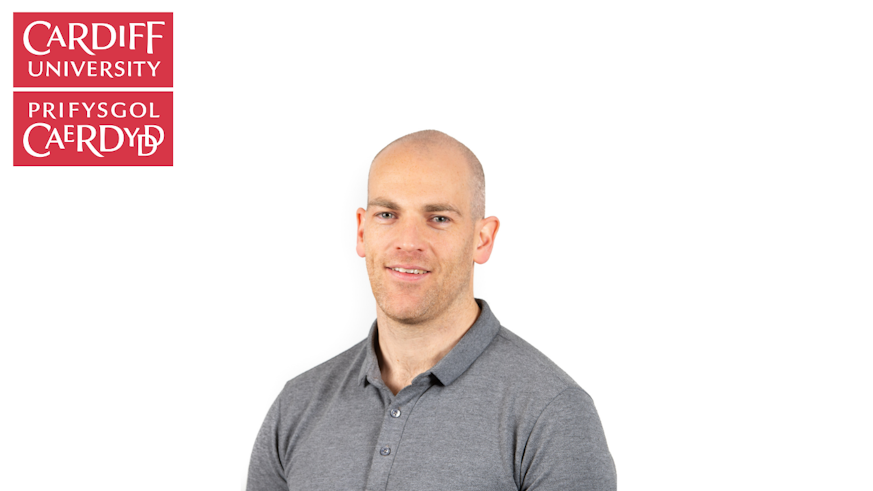Funding secured to develop next generation laser technology
10 March 2021

Samuel Shutts, Post-Doctoral Research Fellow within the School of Physics and Astronomy at Cardiff University, has this month been awarded a Smart Expertise Award from Business Wales within the Welsh Government to deliver ATLAS, a key project for the future of the compound semiconductor industry in Wales.
The Smart Expertise award ‘offers financial support to innovative collaboration projects that require a range of expertise to solve industry problems'.
It exists ‘to support collaborative projects between industry and Welsh research organisations which address industrial challenges, focusing on commercialisation of new products, processes or services and growth in capacity and capability’. Put simply, the aim is to deliver positive Welsh economic impact, and the ATLAS project is set to do just that.
Sam tells us,
“ATLAS is an industry-focused project with an objective to enhance the manufacturing capability of compound semiconductor (CS) lasers, putting South Wales at the leading-edge of CS laser production”.
His role in Cardiff University, within the EPSRC Future Compound Semiconductor Manufacturing Hub (CS Hub), sees Sam working closely with numerous companies across South Wales specialising in the application of compound semiconductors for modern telecommunications.
Working in the CS Hub, Sam spotted an opportunity to further link University research with industry to develop next generation technologies, tackling many of the current challenges faced by today’s manufacturers. Building a strong case and presenting his strategy, Sam went on to secure the award.
He told us,
“the project is a fantastic opportunity to combine the expertise and problem-solving capacity of researchers within Cardiff University to address the real-world challenges faced by today’s rapidly growing compound semiconductor industry in South Wales.
It will support South Wales to become the world’s first Compound Semiconductor Cluster, with Cardiff University and the Institute for Compound Semiconductors (ICS) facility acting as key players.”
Specifically, the project will develop key processes to be scaled-up by industry, enabling next generation data communications (e.g. high-definition streaming and 5G connectivity) and sensing capabilities (e.g. the face/gesture recognition capability of digital devices or the electronic systems that assist drivers in driving and parking cars).
Both data communication and sensing are technologies that rely on two types of CS laser devices (vertical-cavity surface-emitting lasers, and edge-emitting lasers).
ATLAS will focus on the development and production of these lasers, with the key aim being to allow low-cost, energy efficient manufacturing in high-volume production. Such internationally leading advances in CS lasers are excitingly set to benefit both science and industry.
The total project value is £1.8M, comprising of 50% funding from European Regional Development Fund via the Welsh Government's SMART Expertise programme and 50% from the industry partners (Compound Semiconductor Centre, IQE Plc, SPTS Technologies, and Rockley Photonics).
Sam is a Post-Doctoral Research Fellow in Optoelectronics, part of the Condensed Matter and Photonics Research Group within the School of Physics and Astronomy at Cardiff University. His research includes photonics (study of light); laser physics; and the design, fabrication and testing of novel compound semiconductor (CS) lasers for communications, atomic sensors (clocks and magnetometers), sensing, and biomedical applications. Sam is also Scientific Advisor on Photonics and Optoelectronics to the Institute for Compound Semiconductors (ICS).
Interested in studying for an MSc in this ever-growing industry, brimming with exciting and well-paid employment opportunities? If so then our MSc in Compound Semiconductor Physics could be for you!
Share this story
The institute provides cutting-edge facilities to help researchers and industry work together.

